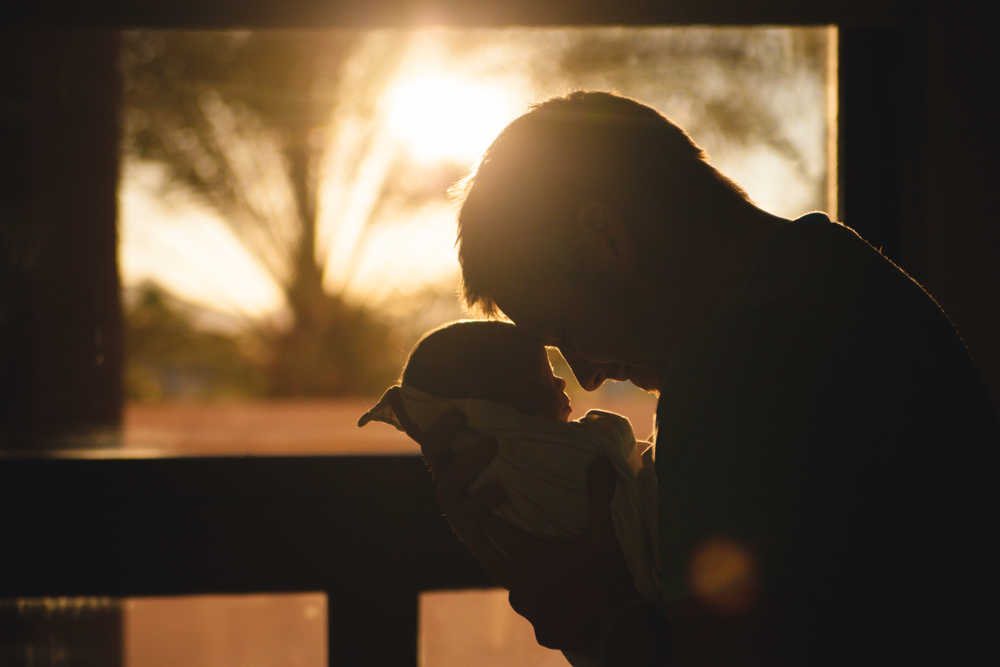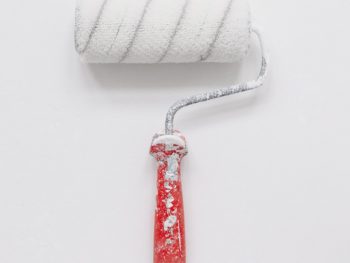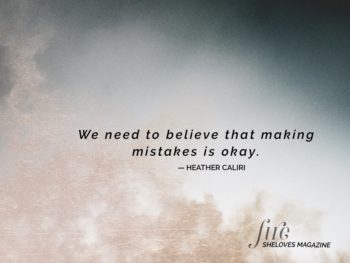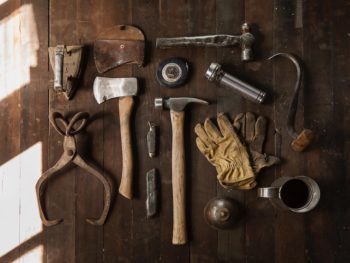
I struggle to handle both too. And then I read a post that made me start to wonder about why, exactly, I need to “handle” these things at all.
At first, I really wanted to hate the post. “F&^% Ina May,” the title said.
As someone who had two home births, who thinks natural birth can be incredibly empowering for women, I was offended. Ina May Gaskin is one of the founders of the modern natural birth movement. Anyone who was cussing her out could be no friend of mine.
Then I read S. Lynn Alderman’s post.
She had a natural birth. A hard, painful, frightening, “successful” natural birth (successful meaning she birthed without the drugs she’d wanted to avoid). And yet at the end, she felt like a failure because she was in pain, because she didn’t feel powerful, because she didn’t feel at peace. Because she couldn’t “handle” it.
And for a long time, she doesn’t know how to come to terms with her “successful” failure.
Finally, she finds some peace by getting angry at the natural birth movement for selling her a vision of birth without a lot of room for brokenness*. She isn’t entirely sure aiming her critique at Gaskin is fair, but decides Ina May can handle being blamed.
After writing honestly about her birth story, Alderman writes, “I think we are lacking the active cultivation of support between women and a closeness with the reality of life’s ugliest beautiful moments.”
And I thought YES. Yes, yes, yes.
Because some of this motherhood gig is ugly. And beautiful. And I, anyway, have trouble with being in a place that is that ambivalent. I feel like a failure if I find myself in one of the ugly places. I am ashamed if I can’t “handle” motherhood.
But being a mother isn’t something we handle. It is something we simply are.
I was telling a friend with older kids that I’ve been struggling with shame lately about my parenting. I simply struggle day to day to feel confident about my choices.
She said, “But I did too, when my kids were that age. This phase you’re in, is just hard. And it’s okay to feel that way.”
I was silent, for a moment, taking in her words.
They helped. A ton.
There is relief in knowing that my current state, ugly and beautiful as it is, is simply OKAY. That maybe there are seasons of parenting I might not pull off with aplomb. That I might find myself in over my head. And that I am allowed to be overcome, to be not handling it.
Alderman writes of her birth, ““I wish I’d invited my whole broken self into the room.”
And I think I need to do that with my parenting. To have a most severe grace for myself, by being ugly, and beautiful, and present.
I am tired of expecting too much of myself in the liminal moments of my life. In birth, and death, and daily humdrum struggle, I want to stop comparing and evaluating my performance. I want to own my life for what it is. I want to be present for myself and those around me. I want to be present for the deep mystery of watching my children grow.
And savor it, sweet, sour, bitter, and everything in between.
*Whether the natural birth movement does indeed sell an overly peaceful version of birth is an interesting and open question–one I’m happy to discuss in the comments, as long as they are respectful of others’ views. I am not sure I agree wholeheartedly with Alderman’s critique, but feel like I don’t need to worry about that too much–I simply can’t know her experience in its depth and complexity. Regardless, I very much agree that there needs to be a lot more dialogue about messiness, brokenness and pain in the birthing process so that women who don’t have a “peaceful” or “typical” birth don’t feel like failures. In birth or parenting or life in general, I think we need to be given the tools and power to define what success means for us, instead of trying to live up to someone else’s definition.
In that vein, what does success mean for you in parenting, in birthing, or in general? Do you have ways to find peace with the ugly, beautiful moments in each day?
Image credit Lukas Kubin













 Dealing with “Irrational” Panic
Dealing with “Irrational” Panic
As one mother who has never had the privilege (or pain) of birth, I really appreciated how you handled this view. Your writing is so lovely and I enjoy your depth of insight.
Thanks, Michelle. I really long to see “motherhood” and “womanhood” defined in such a way that it uplifts and includes people wherever they are. That it’s not an acheivement, but a place to be in.
“But being a mother isn’t something we handle. It is something we simply are.”
Yes. Profoundly so. I need to remember this.
It is a gift to have a group of women of different age that can be real with each other; so rare. It takes cultivation of relationships; creating safe places with each other, you know?
Like this topic, there are so many hot topics that women just encamp and take sides and just don’t seem to see eye to eye, you know? All the while missing out… But being honest and being honest about being broken is risky. I tend to be a blabber mouth (lol), so when a shy friend of mine confessed to me that she thought I was “brave” – it took me by surprise. I fly by the seat of my pants most of the time! I told her that on the contrary, I just don’t think of ‘what ifs’ in that way. I’m greedy. I don’t want to miss out to see what my experience will bring out from others because almost always it benefits me in return. Does that make sense?
Yes, it does make sense. And I love hearing from someone who seizes life in that way. I think I have a little bit of that in me, too–but maybe with a lot more reserve in wondering if I’m simply crazy to want things so much 🙂